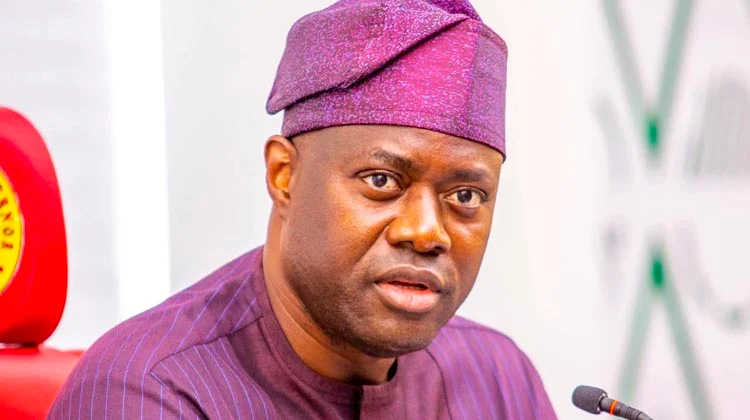News
Why Govs Wanted More Discussions On Tax Bills – Makinde

The governor of Oyo State, Seyi Makinde, stated on Sunday that because of the extensive ramifications of President Bola Tinubu’s tax reform proposals, the 36 state governors called for broader collaboration in order to move the country as a whole forward.
Makinde also clarified that he was not opposed to the tax reforms but only presented the reservations raised by the governors to the press.
In a statement issued by his Special Adviser on Media, Dr. Sulaimon Olanrewaju, Makinde made this clarification during a media chat on the Broadcasting Corporation of Oyo State on Saturday.
On October 3, 2024, President Bola Tinubu transmitted four tax reform bills to the National Assembly: the Nigeria Tax Bill, Nigeria Tax Administration Bill, Nigeria Revenue Service Establishment Bill, and Joint Revenue Board Establishment Bill.
These bills have sparked controversy, with many stakeholders opposing certain sections proposed by the government.
Makinde, who had briefed the media on the position of the National Economic Council regarding the bills, explained that the NEC unanimously agreed that the bills should be withdrawn from the National Assembly to allow for wider consultation.
“At the NEC meeting, we asked the Chairman of the Presidential Task Force about the status of the bills, and he confirmed they were already at the National Assembly,” Makinde said. “I asked, ‘If that’s the case, why are you just coming to us for approval?’ It amounted to putting the cart before the horse.”
He continued: “We agreed that the bills should be withdrawn, enabling broader consultations with stakeholders. This could lead to alignment, whether in their original form or with necessary adjustments based on stakeholder feedback.”
Addressing criticisms that he was opposed to the reforms, Makinde stated: “I was asked to explain our decision to withdraw the bills for consultation, but some people chose to focus on the messenger rather than the message.”
Makinde described the Ibadan funfair tragedy, which claimed the lives of 35 children on Wednesday, December 18, 2024, as a monumental loss.
He noted that the incident, alongside the Bodija explosion in January 2024, could have been avoided if appropriate measures had been taken.
In the Bodija explosion, five people died, 77 sustained injuries, and 58 houses were damaged.
The explosion, which occurred on Dejo Oyelese Street on January 16, was reportedly caused by explosives stored by illegal miners.
Eleven months later, 35 children died, and six others were critically injured in a crowd crush at a funfair held at Islamic High School, Basorun, Ibadan.
The funfair was organised by the foundation of Naomi Silekunola, a former queen of the Ooni of Ife.
Makinde observed a minute of silence for the victims during the media chat.
He assured the public that the legal process was ongoing, though slow.
Addressing allegations of land grabbing linked to the Circular Road project, Makinde said his administration was taking bold steps to break the limitations faced by previous governments in economic expansion.
“Some people have described me as a land grabber,” he said. “Ironically, those under investigation for land grabbing are the ones making these accusations. The Circular Road is not just another road; it will be the first motorway in Nigeria. The 32km stretch from Technical University to Badeku will have only two exit points, ensuring structured development along the corridor.”
Makinde emphasised that his government was committed to initiatives that would benefit residents, even if such decisions seem harsh in the short term.
“To break the cycle of poverty, we need to seize opportunities for lasting impact. Our state’s founding vision is one of prosperity, not poverty,” he said.
Makinde pledged a major overhaul of Oyo State’s education infrastructure in 2025, noting that his administration had consistently exceeded the United Nations Educational, Scientific, and Cultural Organization benchmark for budgetary allocation to education.
“We’ve rearranged resources to prioritise education because it’s critical to our development,” Makinde said. He acknowledged that despite significant investment, much work remains, estimating that N60 billion is needed to address the sector’s challenges.
“For tertiary institutions, we are doing well, and I am satisfied,” he added.




